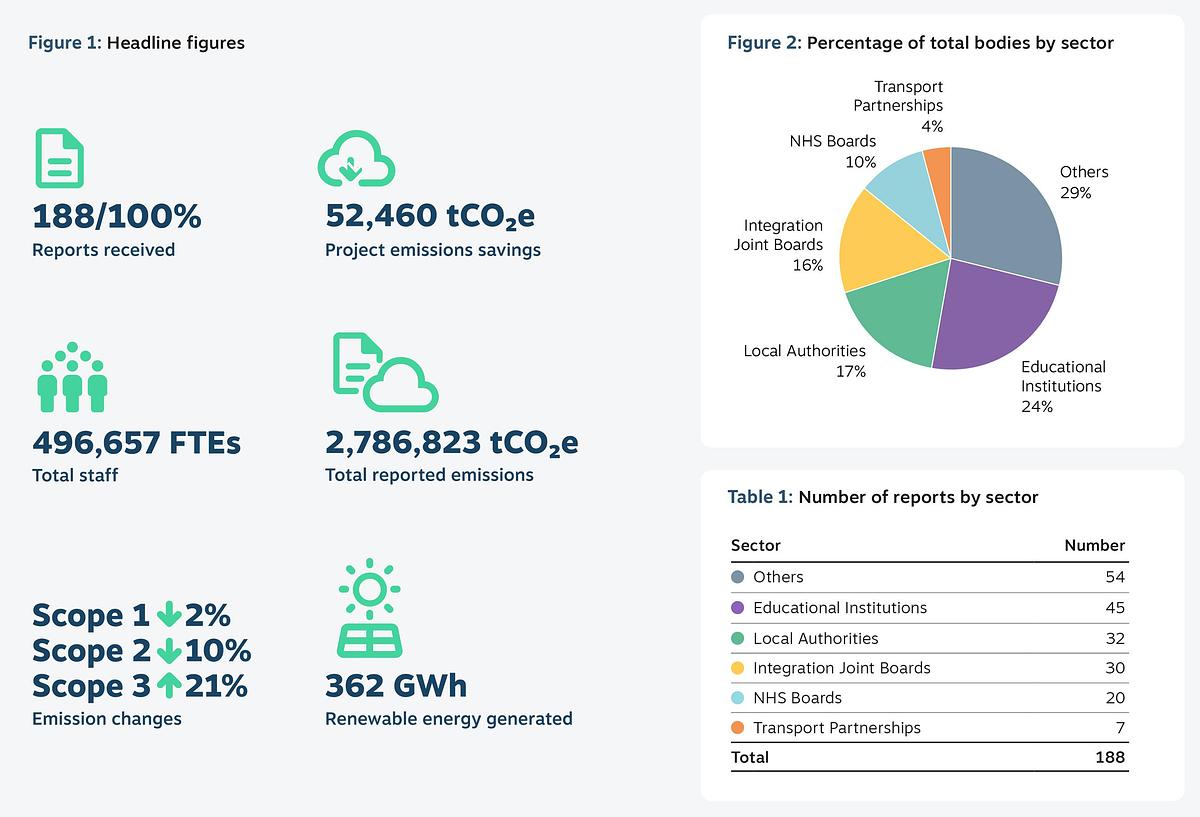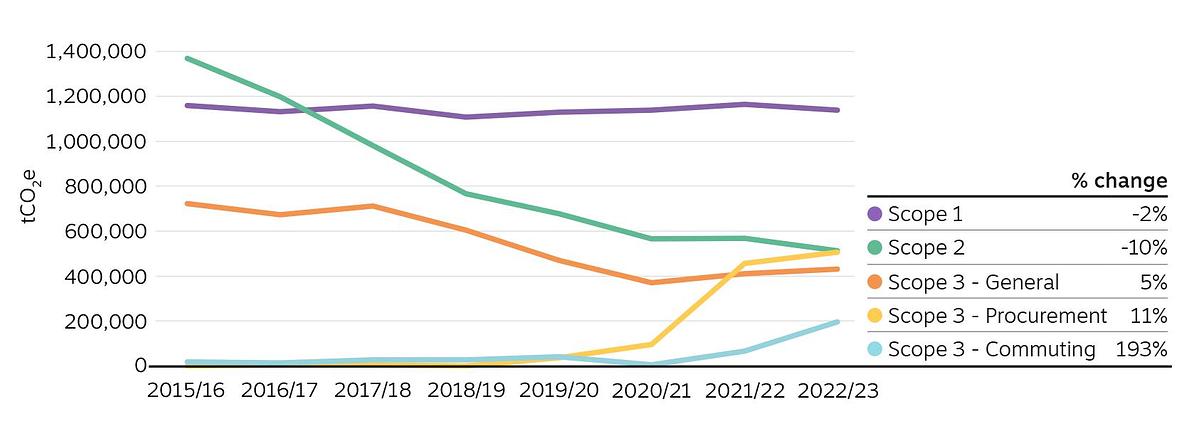The Sustainable Scotland Network (SSN) Summary Analysis of the 2022/23 Public Bodies Climate Change Duties Reports presents key findings on public sector corporate emissions, projects, renewables, emission targets, climate risk assessment and adaptation action.
The report also spotlights projects and initiatives demonstrating the diversity of action that Scotland's local authorities, NHS, universities, colleges, transport partnerships, health and social care partnerships and a host of national agencies are undertaking in response to the climate and nature emergencies.
The public sector achieved 100% compliance with all 188 ‘major players’ submitting an annual report, as required under Scotland's Climate Change Act, (the legislative background to climate change reporting).. This year’s SSN Analysis Report provides more insight into data coverage, the materiality of different emission sources across sub-sectors, and insights on changes over time.

Key Findings:
Scope 1 and Scope 2 reported emissions have decreased 2% and 10% respectively since 2021/22.
- Scope 1 and Scope 2 reported emissions reduced by 2% and 10% respectively since 2021/22.
- 52,460 tCO2e were saved due to emission reduction projects.
- 362 GWh of renewable energy were generated, similar to 2021/22.
- Annual gas consumption fell by nearly 5% from 2021/22 and is the lowest since reporting began in 2015/16, however, this coincided with the warmest year since reporting began in 2015/16
- Fleet emissions increased 5% from 2021/22.
- Reporting of procurement emissions is improving very slowly but remains largely under-reported due to the complexity of data requirements and lack of monitoring capacity.
- Scope 3 emissions increased by 21% compared to 2021/22, mainly due to some educational institutions providing emissions data related to student commuting, including travel at the start and end of terms.. .
- 70% of bodies are undertaking some form of climate risk assessment, a 4% increase from last year

John Wincott, Chair of the Sustainable Scotland Network said:
“I am extremely pleased to see the publication of our analysis report of the Public Bodies Climate Change Duties mandatory reports 2022/23. Our report provides analysis and insights on public bodies’ progress in tackling climate change, including action to reduce emissions and work to address adaptation and build resilience.
The report also shows the scale of the challenge and the progress being made across the public sector.
There are examples of impressive work on climate action, and areas of real progress and innovation. However, it is clear that more is needed to tackle our emissions, for example, from heating public sector buildings, and to continue reducing emissions from transport. And more is needed to drive clarity, consistency and action on adaptation - an area which is going to become ever more important over time.
Moving forward to this year’s reporting process, SSN will continue working with our members and partners to drive improvement in reporting quality and the use of reporting data to inform policy, investment and practice, as well as providing a range of support services to accelerate public sector climate action”.
What's next?
SSN will continue working with the Scottish Government, the SSN Steering Group and key partners on coordinating improvements to the management and delivery of reporting that supports progressive action by public bodies on climate mitigation, adaptation and delivering and influencing sustainable change. This includes supporting the integration of monitoring and reporting insights into climate leadership agendas and decision-making processes. This includes developing robust business plans to achieve emissions reduction targets and adaptation pathways that help realise a just transition to a net zero, resilient and sustainable Scotland.